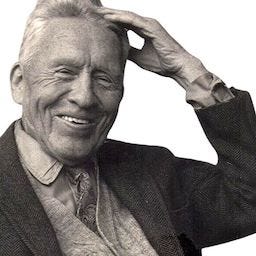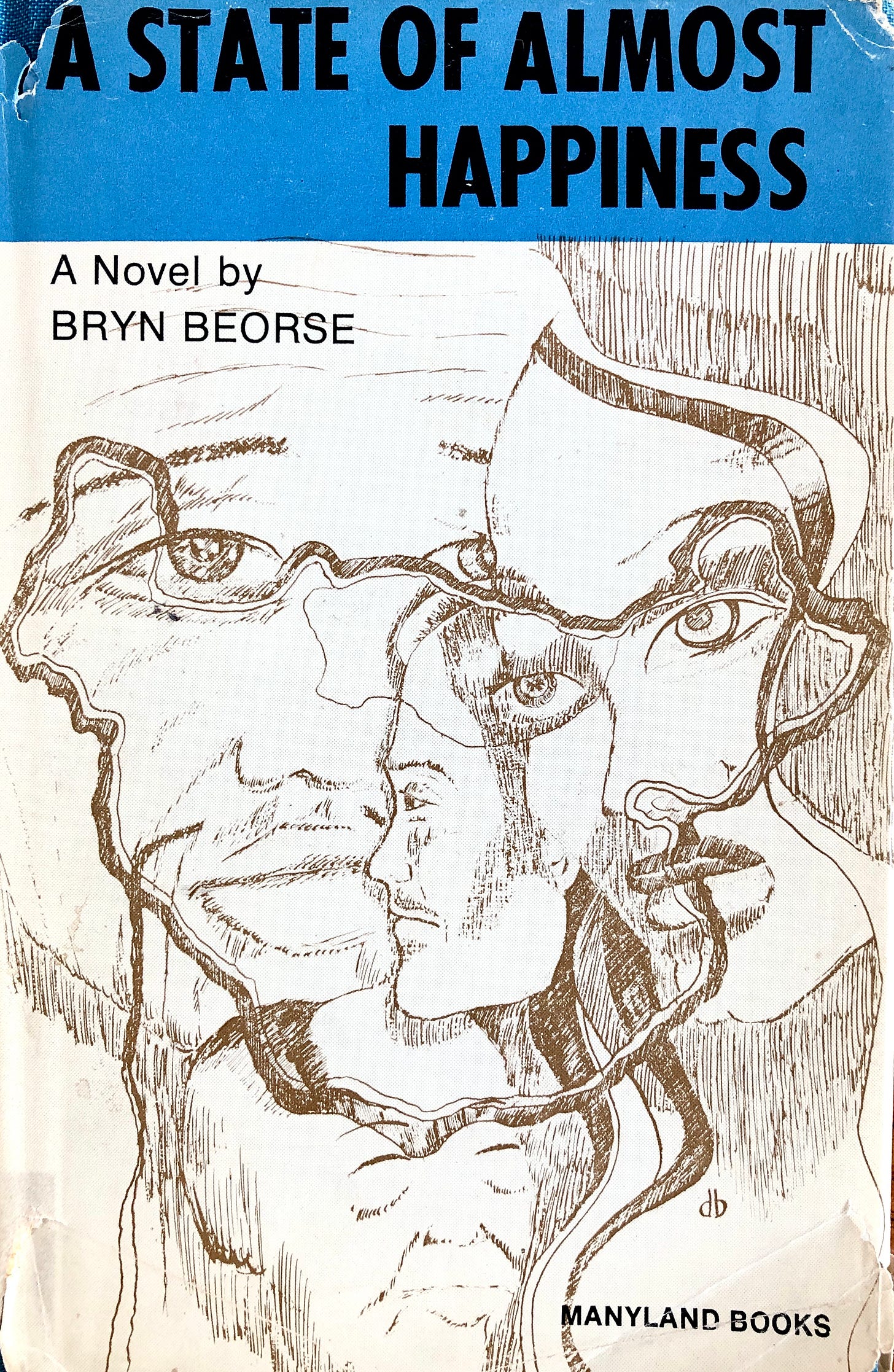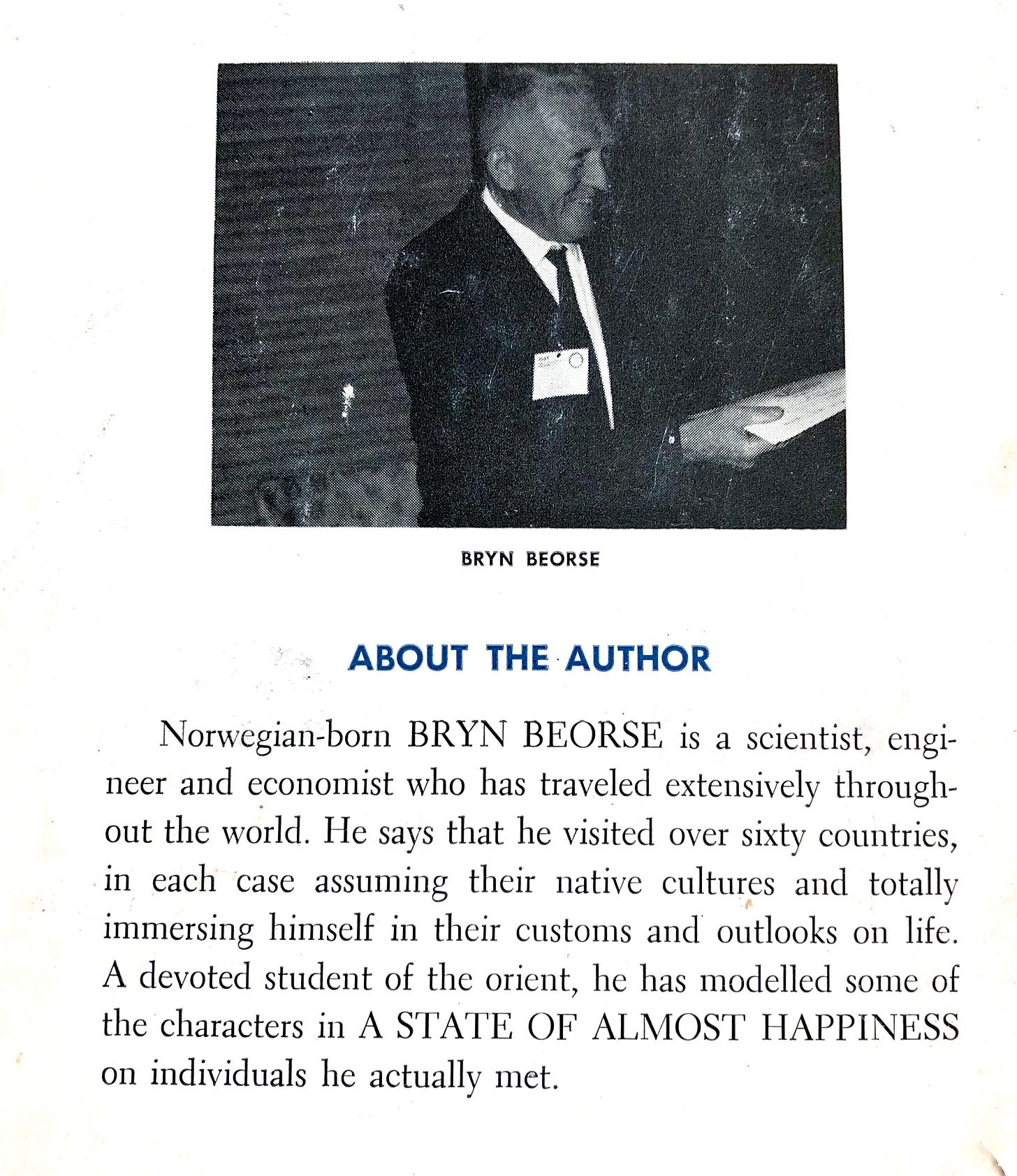Ask for Protection
Welcome to the latest issue of The Shamcher Bulletin, bringing you snippets from Shamcher’s writings that might help frame and context our experience of the world we live in today. Special greeting to new subscribers!
This issue:
Begins with two key messages from correspondence.
Includes excerpts around his book on China (coming soon), along with a special download of Mansur’s OTEC memoir.
Ends with Shamcher’s strong statement on earthly hierarchies.
A Sufi, as you know, is a seeker after truth, and wherever your seeking brings you, that is where you have to go. No one among Sufis is bound to any man, any rule, any organization.
How did Shamcher do it all? In correspondence he gave this simple key for protection:
After I joined my teacher I marched into other professions until I became a generalist, knowing more about money, psychology, than my original subject of engineering, being chosen by our prime minister to restore Norway’s economy after WW II crush, being sent by the United Nations to Tunisia, head of economic mission... but protect yourself against depletion by simply asking for and consciously accepting protection from GOD in your heart.
China on my Mind
With increasing geopolitical interest in China today, Shamcher wrote of his impressions of China in his 1972 novel, A State of Almost Happiness. This book is in prep for re-release in early summer. A bit of background on his real-life Chinese journey after WWII is in the section Spy? Secret Russian Gold in this past issue.
Here’s a little taste from the upcoming edition of Shamcher’s novel, along with blurbs from the original cover as published 50 years ago. It was described in the introduction by Charles Angoff as a factual novel, oscillating between fantasy and realism.
From the front cover flap:
China the inscrutable sheds its veil of secrecy and springs to exhilarating life in the pages of Bryn Beorse’s fascinating novel. An American singer has been mysteriously catapulted deep into the Chinese mainland. How did he get there? And why? Seeking the answer he becomes caught up in a series of breathtaking adventures which bring him face-to-face with the many factions of Mao Tse-tung’s China and which are climaxed by an audience with the poet-statesman himself.
The panorama that unfolds beneath the author’s skilful pen reveals a nation in painful transition: an emerging world power whose roots are still deeply entrenched in the wisdom of the past. The problems which confront it are sensitively presented by Mr. Beorse, whose long years of studying oriental culture and mysticism make him more than qualified for the task. The solutions, he suggests, cannot be provided by mere politics or economics, but must be sought within man himself. A State of Almost Happiness is, in the last analysis, a state of the mind.
Interrogation
The first thing he asked was what I was doing in China.
"Let me demonstrate," I replied; and, before he had time to collect his wits, I launched into the strains of Padmasambhava’s Hymn. The captain listened for a few minutes in pleased astonishment; then he held up his hand for me to stop.
Nonetheless, I was glad that I had managed to find even this slight opportunity to sing for him, because the next thing he wanted to know was my nationality. I replied that I was an American citizen, born and raised in Chungking, so that in effect I carried the cultures of both nations in my blood and in my voice.
"I'm very glad to be back in the land of my birth, "I added.
"Well, then why were you so anxious to get away?"
"I wasn't at first. Your own men can vouch for it. But I suddenly remembered that China was no longer America’s friend."
The captain smiled a little at this; but then his features hardened and he launched into a lengthy tirade against America: America in Korea, America in the Taiwan straits, America in the United Nations, America—China’s arch-enemy. For a moment he seemed to have forgotten about me altogether.
“Now tell me again, what you were planning to do in China?" he asked when he finally came back down to earth.
"Well, to sing for one thing. And perhaps…"
"Have you arranged any concerts?"
"I am not very good in such matters, I'm afraid. And it would have taken forever to get a reply if I had written ahead; so I've just been singing for fellow workers and fellow monks.”
"What about this monk’s robe you're wearing? If you're an American, you can't very well be able to be a Buddhist monk, can you?"
"Many of us are these days."
"I suppose we can always check on it. Now, you started telling me that there was something else you wanted to do here. What's that?"
"Well, I was hoping to talk with someone who could explain what the China of today is and what it wants. To the First One for instance." … to be continued.
Mansur’s OTEC Memoir
Mansur Johnson’s memoir of Shamcher’s struggle to introduce ocean energy to the US is available for download here at no cost.
In his introduction, Mansur said: What follows is how I was guided and directed by Shamcher, who took me under his wing and worked with me and hundreds of others, to bring OTEC to the attention of the nation.
You may also find out more about Mansur’s work at his website, MansurJohnson.com.
I have little respect for hierarchies, for example, those represented on earth, worldly or clerical. … You understand, when I call my thought on hierarchies “idiosyncrasies” that is a play on words. I believe I am more than right. I may not know the exact degree to which this should be reduced or revised, but an awful lot has to be done. In heaven there may be a sort of hierarchy but this is never expressed on earth, not even in the most holy “orders”. You find a ditch-digger half hidden in his ditch, I see his heart miles above the bishops and yogacharies.
Thanks for responding, sharing, and subscribing to these excerpts from the archives of Shamcher Bryn Beorse.
Feel free to reply to this post if you have any Shamcher stories, photos or correspondence to share.
The Shamcher Bulletin is edited by Carol Sill, whose newsletter, “Personal Papers”, is HERE.
If you like this post, please click the heart. And your comments are always welcome.





